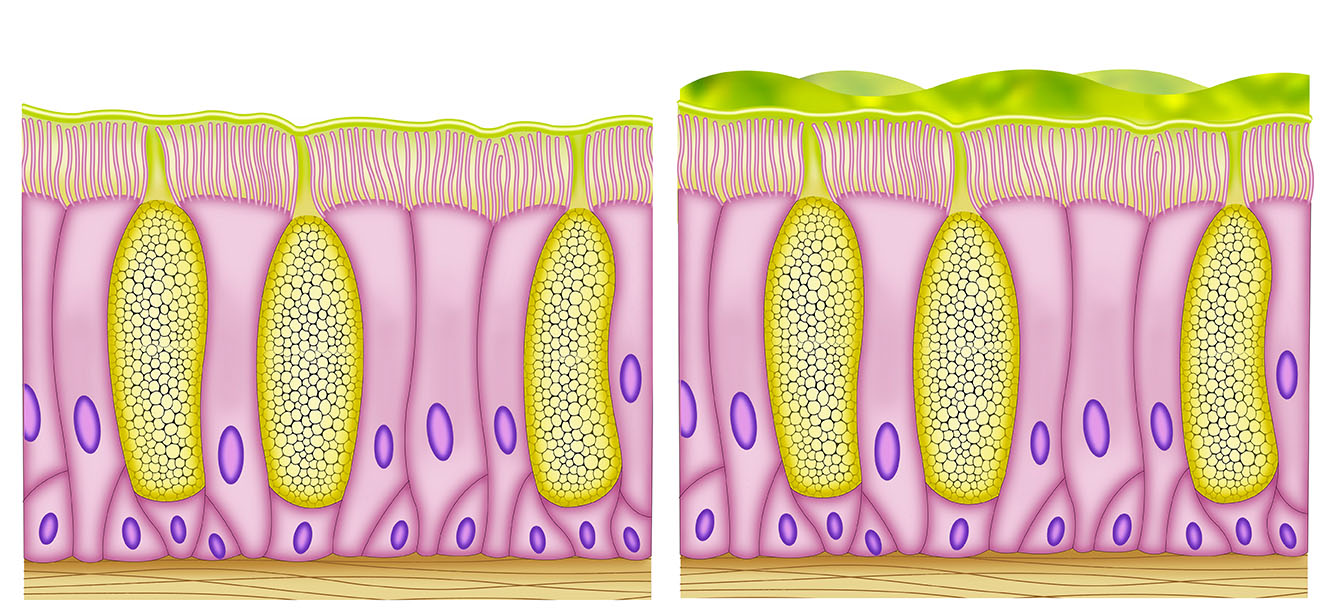

Secrete means to produce and release a substance. In science, the word "secrete" is often used to describe how cells release proteins, enzymes, and other substances.
Secretion is a complex process that involves the coordinated activity of many different proteins. The first step in secretion is the synthesis of the protein or enzyme. This process takes place in the cell's endoplasmic reticulum.
Once the protein or enzyme is synthesized, it is transported to the Golgi apparatus. The Golgi apparatus modifies the protein or enzyme and packages it into vesicles.
The vesicles then travel to the cell membrane. When the vesicles reach the cell membrane, they fuse with the membrane and release their contents into the extracellular space.
Secretion is an important process for cells. It allows cells to communicate with each other and to regulate their environment. For example, cells in the pancreas secrete insulin, which helps to regulate blood sugar levels. Cells in the stomach secrete acid, which helps to break down food. And cells in the skin secrete sweat, which helps to cool the body.
The pancreas secretes insulin.

Verb:
Noun:
The word "secrete" comes from the Latin word "secretum", which means "something hidden".
The first recorded use of the word "secrete" in English was in the 14th century.
The word "secrete" is a Latin word, and it is related to the English word "secret".
What does secrete mean?
Question:
Explain the process by which glands secrete hormones into the bloodstream and how these hormones regulate various physiological functions in the body.
Answer:
Glands play a pivotal role in maintaining bodily functions by secreting hormones into the bloodstream. This process, known as endocrine secretion, involves specialised cells within glands synthesising hormones and releasing them into the circulatory system.
Upon secretion, hormones travel through the bloodstream to target cells or organs equipped with specific receptors. The hormone-receptor interaction triggers a series of chemical signals that regulate various physiological functions. For instance, the thyroid gland secretes hormones like thyroxine, which regulate metabolism, energy production, and body temperature.
The endocrine system's orchestration of hormones contributes to homeostasis, ensuring a balanced internal environment. The pancreas secretes insulin to regulate blood sugar levels, the adrenal glands release adrenaline during the "fight or flight" response, and the pituitary gland produces growth hormone to influence growth and development.
The feedback loop is integral to this process. The body monitors hormone levels and adjusts secretion based on its needs. Negative feedback mechanisms, where rising hormone levels suppress further secretion, help maintain stability. For example, the release of parathyroid hormone (PTH) responds to low blood calcium levels, stimulating bone resorption to elevate calcium levels.
Address
Developing Experts Limited
Exchange Street Buildings
35-37 Exchange Street
Norwich
NR2 1DP
UK
Phone
01603 273515
Email
hello@developingexperts.com
Copyright 2025 Developing Experts, All rights reserved.